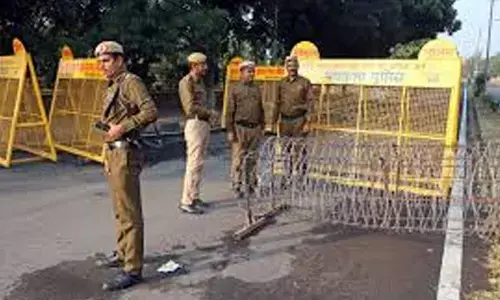Fasting and travelling during Ramadan? Here’s what you need to do

During Ramadan, fasting and traveling can present unique challenges for Muslims. Here are some guidelines to help navigate fasting and traveling during this holy month:
1. Intention (Niyyah): Ensure you have the intention to fast before Fajr (dawn). This is essential for your fast to be valid, whether you're at home or traveling.
2. Consult Islamic Scholars: If you're uncertain about the rulings regarding fasting while traveling, consult Islamic scholars or knowledgeable individuals who can provide guidance based on your specific circumstances and the rulings of your school of thought (Madhab).
3. Exemption During Travel: Islam provides exemptions from fasting for travelers. According to many scholars, you have the option to either fast or defer your fast and make up for it later. This flexibility aims to ensure ease and not impose undue hardship.
4. Short vs. Long Journeys: Different scholars have different interpretations regarding what constitutes travel in the context of fasting during Ramadan. Some consider any journey, regardless of distance, as qualifying for exemption from fasting, while others specify a certain distance or duration. It's essential to follow the interpretation that aligns with your beliefs and guidance from knowledgeable sources.
5. Making Up Missed Fasts: If you choose to defer fasting while traveling, you must make up for the missed fasts later in the year. You can do this on non-consecutive days at your convenience.
6. Paying Fidyah: In some cases, where fasting might be excessively difficult or harmful during travel, scholars may permit the payment of fidyah (compensation). Fidyah involves feeding a needy person for each missed fast. However, this option is usually reserved for those with chronic illnesses or elderly individuals for whom fasting poses a significant health risk.
7. Observing Salah (Prayers): Despite traveling, Muslims are still required to observe their daily prayers, including those performed while on the move. Make sure to plan your travel arrangements to accommodate your prayer times.
8. Stay Hydrated: Especially if you're traveling to warmer climates or engaging in physically demanding activities, ensure you stay hydrated before and after your fasting hours. Dehydration can lead to health complications, so prioritize drinking water during non-fasting hours.
9. Be Mindful of Local Customs and Laws: While fasting during Ramadan is a religious obligation for Muslims, it's essential to respect local customs and laws, especially in non-Muslim-majority countries. Understand the cultural sensitivities and legal requirements related to public fasting and observance.
10. Seek Allah's Mercy and Forgiveness: Remember that the essence of fasting in Ramadan goes beyond abstaining from food and drink. It's a time for spiritual reflection, self-discipline, and seeking closeness to Allah. Whether traveling or not, maintain a mindset of humility, gratitude, and devotion throughout the month.
Ultimately, the goal is to strike a balance between fulfilling religious obligations and ensuring your health and well-being, especially during challenging circumstances like traveling during Ramadan. Consulting with knowledgeable individuals and seeking guidance from reputable sources can help you make informed decisions tailored to your individual circumstances.
















